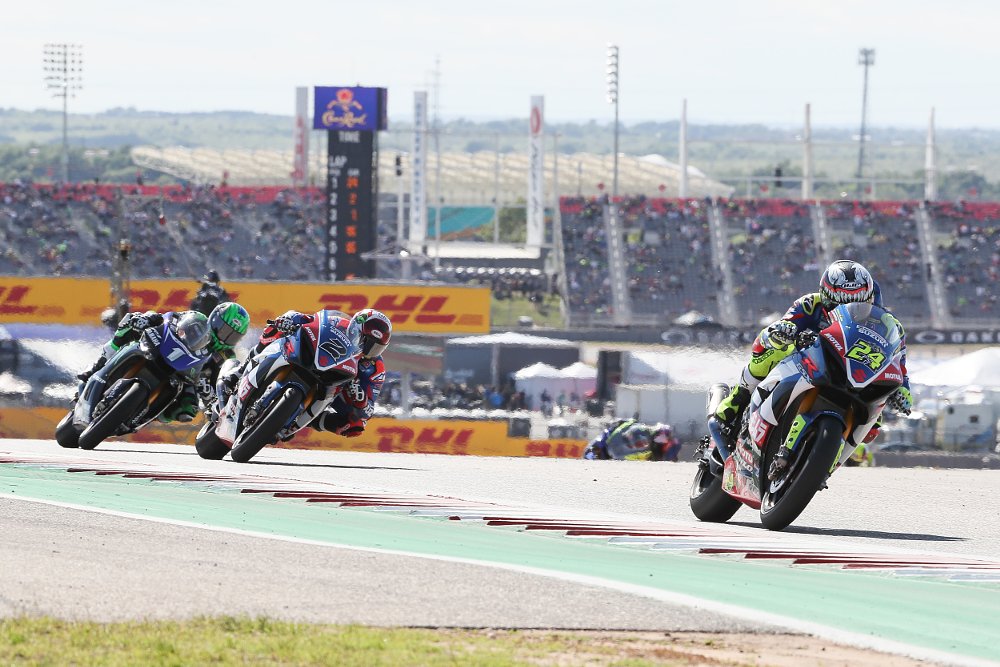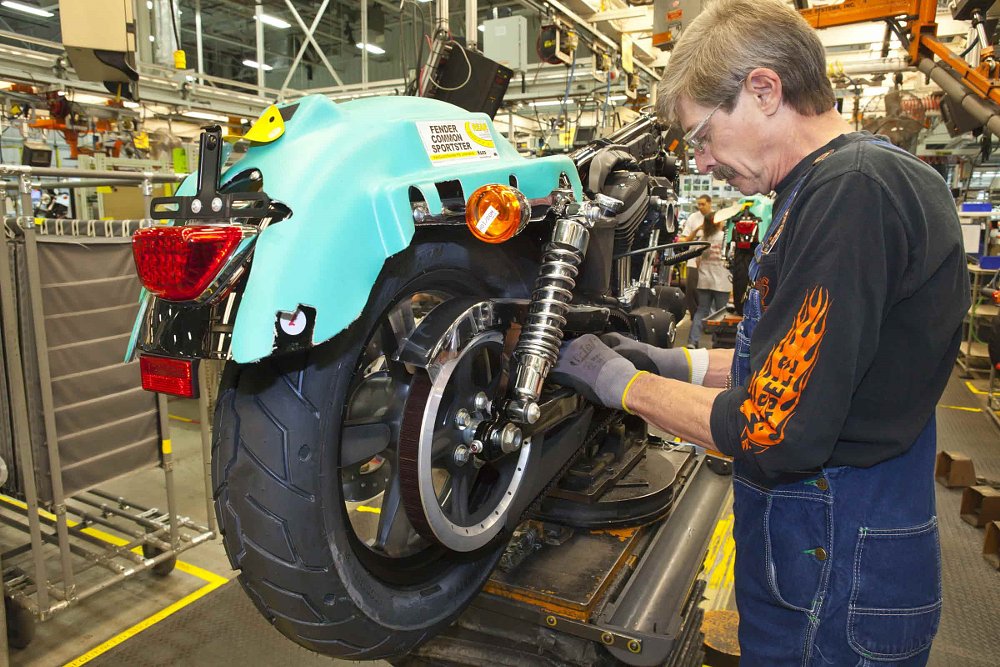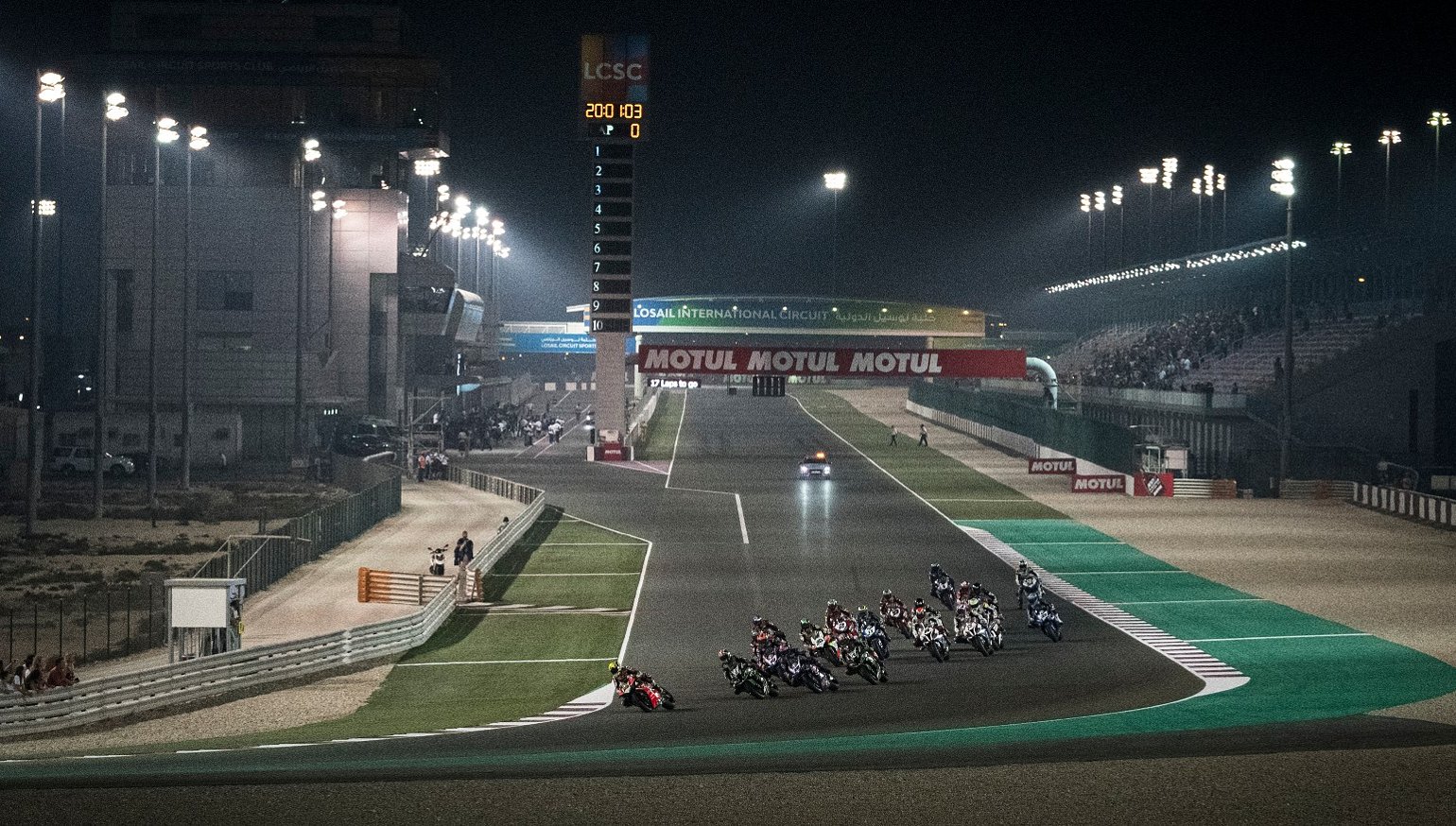Disruption in the motorcycle world continues as the Lauretana Water Qatar Round of the MOTUL FIM Superbike World Championship has been postponed, just as the MotoGP race scheduled in Qatar for this weekend has been canceled due to virus-related travel restrictions.
The Qatar round of WSBK, scheduled for March 13-15, fell victim to the same travel restrictions on people coming into Qatar from Italy that caused the problem with the MotoGP race. A two-week quarantine is required for people entering from Italy. The number of confirmed cases of COVID-19, the disease caused by the coronavirus, has soared in Italy and was up to 1,689 in the most recent World Health Organization Situation Report. Of those people, 35 in Italy have died.
Though the World Superbike paddock was in Australia for the opening round, there were probably some teams that returned to Italy and other personnel who would be coming from Italy. "Italian participation in WorldSBK — both on track and off — is vital, thus the decision has been taken to postpone the Lauretana Water Qatar Round until further notice," the FIM and Dorna stated in explaining the cancellation.
In MotoGP, with the first round in Qatar canceled and the second round in Thailand postponed (or possibly to be canceled), at the request of the Thai government, the first race of the season will now be the Red Bull Grand Prix of the Americas in Austin, Texas. That's assuming the United States doesn't impose travel restrictions that disrupt that round, scheduled for April 5.

The opening round of the MotoAmerica Superbike series (but not the other MotoAmerica classes) is scheduled to take place at Circuit of the Americas as part of the MotoGP weekend. MotoAmerica communications manager Paul Carruthers confirmed that if the MotoGP round is canceled, the MotoAmerican Saturday and Sunday Superbike races would be canceled and the season would open at Road Atlanta on the weekend of April 17-19. If MotoGP doesn't come to the Circuit of the Americas, it would make no sense for the MotoAmerica Superbikes to race in front of what would surely be empty grandstands.
The Monster Energy Supercross series is also an FIM world championship, but a strange one in the sense that it takes place entirely within the United States. Since any foreign-based team members or riders have been in the United States since before the series began with the new year, there's not likely to be any disruptions unless things get a lot worse and people start avoiding large public events.
While it's hard to predict what the situation will be like this summer, when the MotoGP and World Superbike series are in the heart of their European rounds, it's increasingly possible that more races will be canceled. Events ranging from concerts to international rugby matches in Europe have already been canceled and health officials in Italy are recommending that more sports events and other large activities be cancelled. There is even speculation that the Olympic Games in Tokyo may not take place.
What about the motorcycle industry?
A virus can't hurt a motorcycle, but a virus that keeps millions of people in their homes and makes them uncertain about the future can cause an economic recession that hurts motorcycle companies, just like all other businesses. That has already started in China, where the purchasing managers' index (PMI), a measurement of manufacturing activity, officially came in at 35.7 for February. That's the lowest reading ever recorded, and it means everything from decreased earnings for companies to supply chain disruptions to lost jobs for workers. Japan also has reason for concern, with the highest number of cases in Asia except for China and South Korea.
While Italy has more than 10 times as many confirmed cases as any other country in Europe, Germany is second, with 129. Italy and Germany are two of the region's biggest motorcycle markets, along with Spain, and if economic activity slows down because of people staying home and delaying their spending, that will affect companies like BMW and Ducati, particularly.

The two major U.S. motorcycle brands, Harley-Davidson and Indian, would certainly be hurt by a worldwide recession but if the United States remains less affected by the virus outbreak — and that's a big "if" — they might suffer less than European manufacturers. The problem is that Harley-Davidson, in particular, is already dealing with enough disruptions, including the recent change at the top. Then there's the fact that Harley's sales have been declining for the past five years during the longest economic expansion in U.S. history. It's hard to imagine those sales numbers improving if that long expansion turns into a recession.
As publicly traded companies, Harley-Davidson and Polaris, the parent of Indian, would be required to report material changes to their business situation. Other companies already have issued warnings. Apple was among the first to issue a virus-related warning, for example, when it said last month that its business would be impacted by supply chain disruptions because of the situation in China. Other companies have decided to withdraw investor guidance, essentially saying they can't predict how their bottom lines will be affected over the next quarter. So far, Harley-Davidson and Polaris have not issued any changes to their financial guidance.
Harley-Davidson's "safe harbor statement," or notice of forward-looking statements, which is a lawyer-written standard addendum to financial announcements, is an impressively thorough one, coming in at a robust 1,244 words. Not surprisingly, it does include "widespread infectious diseases" as a potential factor that could disrupt business, along with other possible troubles such as natural disasters and labor strikes.
In an uncertain world, one thing you can count on: Harley's lawyers think of everything.

 Membership
Membership






